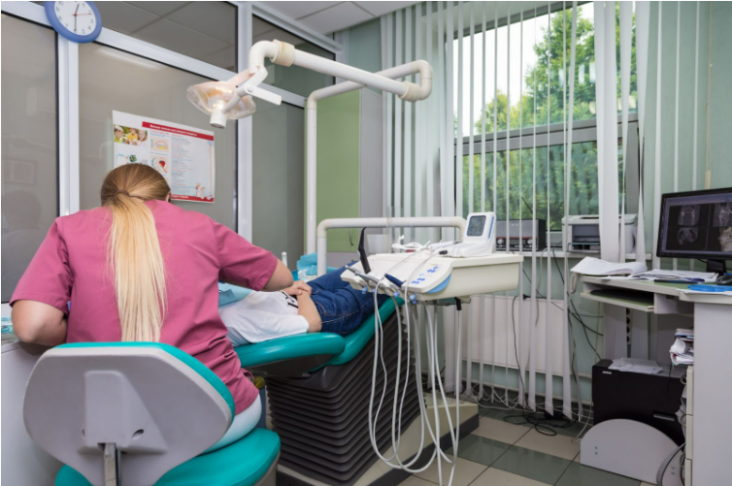Providing healthcare at home can be challenging, particularly when you are involved in a number of other tasks at the same time. However, having the appropriate medical supplies and equipment may make a real difference in terms of guaranteeing the safety and comfort of your loved ones while also making your responsibilities as a caregiver easier to manage. Whether you are providing care for an elderly parent, a family member who is recovering from surgery, or a loved one who is suffering from a chronic illness, the following is a list of important medical equipment and supplies you should have for home healthcare.
Blood Pressure Monitor
When it comes to monitoring and managing hypertension, which is a condition that is common among people who are elderly and those who have cardiovascular disorders, a blood pressure monitor is absolutely necessary. Performing routine monitoring can assist in the early discovery of any anomalies, which enables timely medical care to be administered. Caregivers are able to easily monitor the health of their loved ones with the assistance of automatic digital monitors because these monitors are not only user-friendly but also provide accurate and reliable readings. It is one of the crucial medical equipment and supplies both patients and caregivers should consider.
Glucose Monitor
It is absolutely necessary for people with diabetes to have a glucose monitor. The use of this device allows for more accurate monitoring of blood sugar levels, which in turn enables more effective management of the condition through dietary, medication, and lifestyle modifications. Memory storage and Bluetooth connectivity are two of the features included in advanced glucose monitors. These features make it possible to easily communicate data with medical professionals.
Thermometer
When it comes to detecting fevers, which can be an indication of infection or other health problems, picking an accurate and reliable thermometer from available medical equipment and supplies is quite necessary. Digital thermometers are the most popular choice in today’s healthcare because of their precision and user-friendliness. Many of the more recent models are equipped with features such as rapid readings and alarms for fever, which make it much simpler to monitor a patient’s temperature continuously.
Pulse Oximeter
The oxygen saturation level in the blood is measured by a pulse oximeter, which is an important metric for patients receiving treatment for respiratory disorders such as COPD or COVID-19. It is a small device that does not require any invasive procedures and can be attached to a finger to receive instant readings. Monitoring the levels of oxygen in the blood can be helpful in controlling respiratory health and determining when it is necessary to seek medical assistance.
First Aid Kit
A first aid kit that is adequately supplied is an essential item for any home. However, it is especially important for those who provide on-site medical care. It is recommended that the kit have the following items: bandages, gauze, antiseptic wipes, adhesive tape, scissors, tweezers, instant cold packs, and basic drugs such as painkillers and antihistamines. The availability of these supplies ensures that you will be ready to deal with minor injuries and unexpected situations in a timely manner.
Incontinence Products
For patients who struggle with incontinence, it is essential to have access to the appropriate medical equipment and supplies in order to maintain their comfort and dignity. Mattress coverings that are waterproof, absorbent pads and adult diapers are all included in this category. These supplies help in better management of urine and fecal incontinence, resulting in the prevention of skin irritation and hygiene maintenance.
Mobility Aids
Individuals who have limited mobility definitely require mobility aids such as walkers, canes, and wheelchairs in order to function properly. By providing support and stability, these aids lessen the likelihood of falling and make it possible for individuals to live more independently. Mobility aids should be selected according to the unique requirements of the patient, taking into consideration aspects such as ease of use and comfort.
Bed Safety Rails
When it comes to preventing falls and ensuring the safety of patients who spend a significant amount of time in bed, bed safety rails are necessary. Both getting into and out of bed can be made easier with the assistance of these rails, which can be affixed to the bed frame. Individuals who are recovering from surgery or elderly patients can benefit tremendously from their use.
Shower Chair and Grab Bars
Bathrooms can be a dangerous place for patients who have limited movement. It is possible to dramatically improve safety by doing things like installing grab bars and giving patients access to a shower chair. The use of grab bars which are useful medical equipment and supplies that provides support when entering and departing the shower or bathtub while the use of a shower chair provides a sturdy seating option, hence reducing the likelihood of slipping and falling.
Medication Organizer
Both patients and caregivers may find it difficult to effectively manage multiple drugs at the same time. In order to ensure that prescriptions are taken correctly and at the appropriate times, it is helpful to have a medication organizer that has separate compartments for each day of the week and each hour of the day. Certain medication organizers come equipped with alarms and reminders, which give an additional level of convenience to the equipment.
Conclusion
Providing home healthcare can be a challenging endeavor. However, if you are equipped with the appropriate medical equipment and supplies, the procedure can be made more streamlined and effective. There are a number of key factors that contribute to the creation of a supportive and secure environment for both patients and caregivers. These items include monitoring vital signs, ensuring patient safety, and managing medications. Always keep in mind that it is equally as vital to take care of yourself as it is to take care of other people in order to maintain your capacity to deliver the highest possible level of care.



